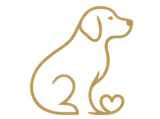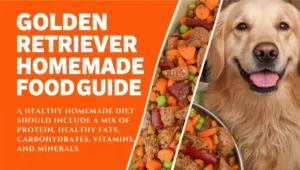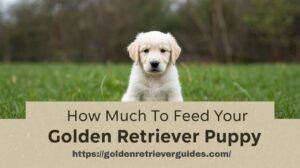Best Diet for Golden Retriever: What Actually Works
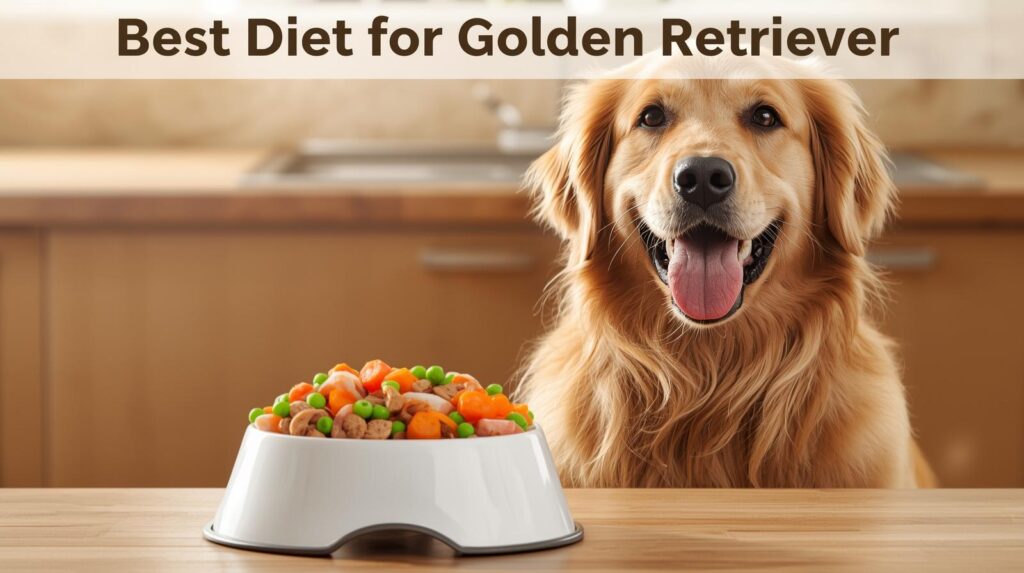
Let me tell you something figuring out the best diet for golden retriever pups isn’t as straightforward as the dog food commercials make it seem. I’ve spent eight years with my golden, Max, and I’ve learned more from trial and error than I ever did from reading the back of kibble bags.
These dogs eat like they’ve never seen food before, and honestly? That enthusiasm never goes away. But here’s the thing: getting their diet right isn’t just about filling a bowl twice a day. It’s about understanding what makes these goofballs tick and keeping them healthy for as long as possible.
What Your Golden Actually Needs to Eat
So here’s what I wish someone told me on day one: the best diet for golden retriever dogs needs around 18-25% protein. Puppies? They need even more somewhere between 22-28%. I didn’t know this when Max was young, and looking back, I probably wasn’t feeding him quite right those first few months.
Your average active golden needs about 1,300 to 1,700 calories daily. But don’t just trust that number blindly. Max is a couch potato compared to my neighbor’s golden who runs five miles every morning. Same breed, totally different energy needs.
The Stuff That Really Matters
Look, I’m not a nutritionist, but I’ve learned that the best diet for golden retriever health starts with real meat. Chicken, beef, turkey, lamb, fish whatever you choose, make sure it’s the first ingredient. Not “meat by-products” or “chicken meal.” Actual meat.
Then there’s the fat situation. Golden retrievers need omega-3s and omega-6s for their coats. You know how some goldens have that gorgeous, shiny fur? Yeah, that comes from the inside out. Max’s coat looked dull until I switched to a food with fish oil in it. Night and day difference.
Feeding Puppies Without Screwing It Up
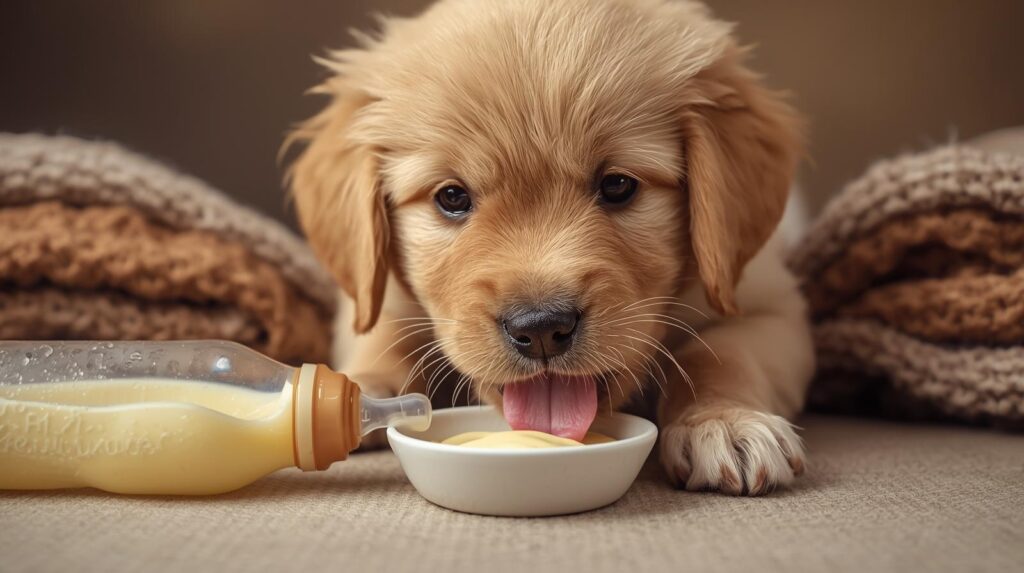
Puppy time is when you can really mess things up, so pay attention here. The best diet for golden retriever puppies is all about controlled growth. These dogs grow FAST, and if they pack on weight too quickly, you’re looking at joint problems down the road.
When Max was 2-3 months old, he was eating about 3 cups of food split into three meals. Yes, three meals. Puppies can’t handle big portions all at once.
Here’s How Much to Feed at Each Age
| Age | How Much Food Daily | Number of Meals | Protein They Need | Food Type Recommendation |
|---|---|---|---|---|
| 2–3 months | 3 cups | 3 times | 22–28% | Puppy kibble softened with water or puppy wet food |
| 4–6 months | 3–4 cups | 3 times | 22–28% | High-protein dry kibble or mixed wet/dry |
| 7–12 months | 4–5 cups | 2 times | 20–25% | Large-breed puppy or transition to adult formula |
Around their first birthday, you’ll switch to adult food. Don’t do it overnight though. Mix the new food in gradually over a couple weeks. Trust me golden retriever stomachs are sensitive, and you don’t want to deal with the aftermath.
What Works for Adult Goldens
Once they’re grown, most golden retrievers do fine with 1 cup of food twice a day. But here’s where people mess up: that “1 cup” depends entirely on what food you’re using. Premium, calorie-dense food? You might need less. Cheaper stuff with fillers? You’ll need more.
The general rule says goldens need 450-675 grams (about 2-3 cups) daily. But honestly, the best diet for golden retriever weight management comes down to watching their body, not just measuring cups.
Keeping Your Golden from Getting Chunky
Goldens will eat anything. ANYTHING. They’re food-obsessed, and it’s adorable until your vet tells you your dog needs to lose 15 pounds. You should be able to feel your dog’s ribs without pressing hard, and they should have a visible waist when you look from above.
I weigh Max every month same scale, same time of day. If he’s creeping up, I cut back a bit. Winter months when he’s running around in the snow? He gets a little more. It’s not rocket science, just paying attention.
The best diet for golden retriever companions means no free-feeding. Seriously, just don’t. Measure every meal. Use an actual measuring cup. Your dog’s joints will thank you later when they’re not carrying around diabetes risk and extra weight.
Store-Bought vs Making Your Own
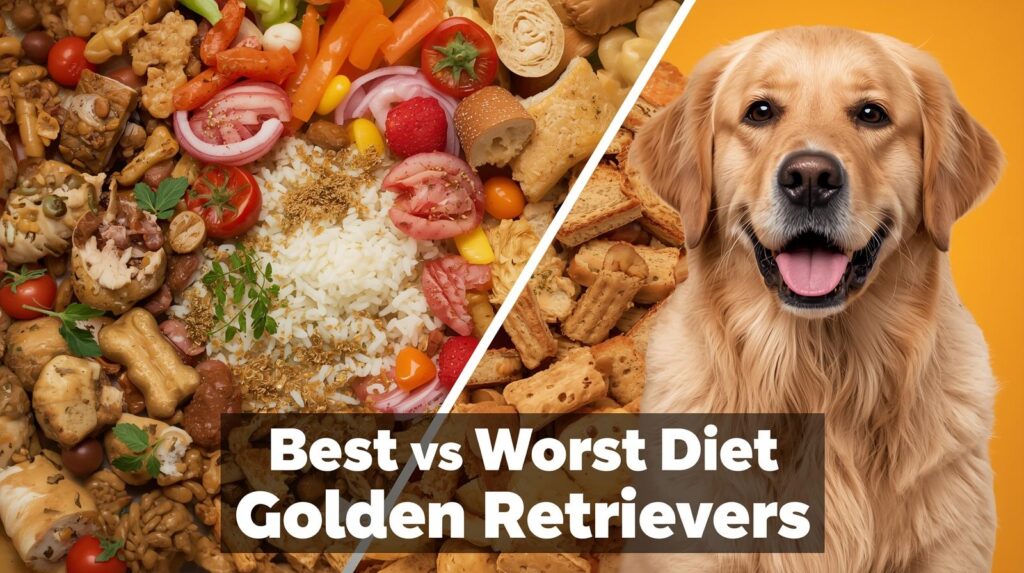
I’ve tried both routes with the best diet for golden retriever nutrition, and I’ll be straight with you: commercial food is way easier. But that doesn’t mean it’s always better.
The Kibble Route
Good commercial food works. Look for brands where real meat is ingredient number one. Skip anything that lists corn, wheat, or “by-products” in the first five ingredients. I’ve spent hours in pet store aisles comparing labels, and yeah, you pay more for quality, but it matters.
Going the DIY Path
Some folks swear by raw or homemade diets. I tried this with Max for about six months. It was exhausting. Getting the calcium-phosphorus ratio right, making sure he got all his vitamins, worrying about salmonella from raw chicken it was a lot.
If you want to go this route for the best diet for golden retriever health, talk to a vet nutritionist first. Not just your regular vet someone who specializes in canine nutrition. Otherwise you might think you’re doing great while your dog develops deficiencies.
When Your Golden Gets Old
Around age seven, things change. Max is eight now, and feeding him isn’t the same as when he was three. The best diet for golden retriever seniors needs adjustments because their metabolism slows way down.
What Changes as They Age
Cut calories by about 20-30% after age seven unless your dog is still super active. Senior formulas have glucosamine and chondroitin built in, which helps with joints. Goldens are prone to hip dysplasia and arthritis, so this stuff matters.
Protein can drop to around 18% for older dogs. Their kidneys don’t work as hard, but they still need enough to maintain muscle. My vet also suggested probiotics when Max turned eight. His digestion got way better.
Health Problems You Need to Know About
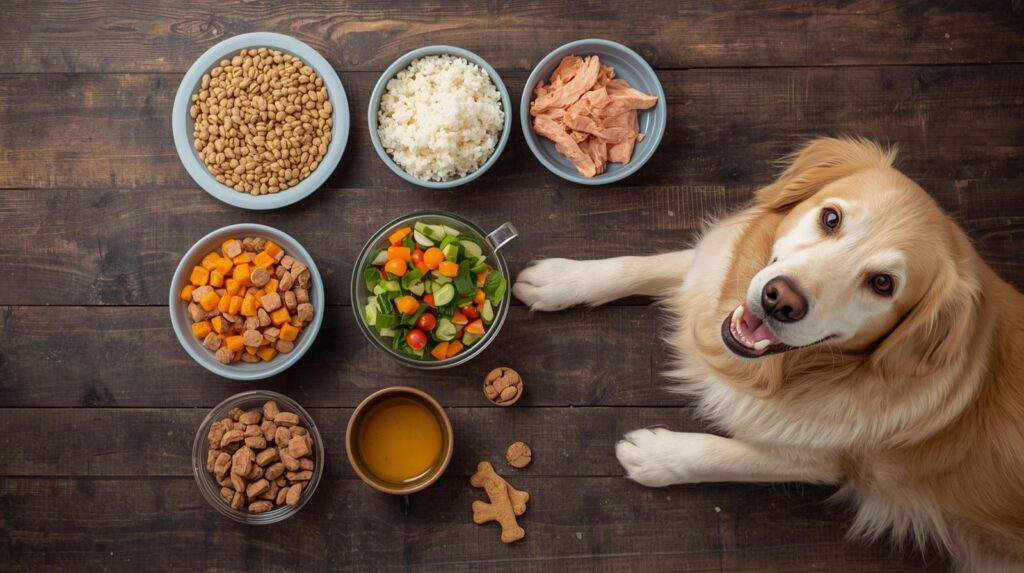
Here’s something nobody tells you before you get a golden: they have health issues that diet can help with. Understanding this is part of finding the best diet for golden retriever wellness.
Joint Issues Are Real
So many goldens develop hip dysplasia or arthritis. Omega-3s, glucosamine, chondroitin these aren’t just marketing buzzwords. They actually help. But more than supplements, keeping your dog at a healthy weight is the biggest thing you can do for their joints.
The Allergy Situation
Max developed allergies around age four. Turns out, lots of goldens have food sensitivities. Common culprits? Chicken, beef, dairy, grains. We switched to a limited-ingredient diet with salmon, and his constant scratching stopped within two weeks.
Heart Stuff You Should Worry About
There’s this thing called DCM dilated cardiomyopathy that’s been linked to certain diets. The best diet for golden retriever heart health includes enough taurine, which comes from meat-based foods, not grain-heavy ones. After that whole grain-free scare a few years back, I made sure Max’s food had adequate taurine levels.
Treats Without Going Overboard
Here’s a rule that actually works: treats should be less than 10% of their daily calories. I use tiny training treats during our sessions freeze-dried meat or sweet potato bits, nothing fancy.
Supplements That Might Actually Help
The best diet for golden retriever nutrition should cover everything, but sometimes supplements fill gaps:
- Fish oil: Max’s coat transformed after I added this
- Joint supplements: Started these at age five, preventatively
- Probiotics: Game-changer for his digestion
- Multivitamins: Only if you’re doing homemade meals
Don’t just start throwing supplements at your dog. Ask your vet first. Too much of anything can cause problems.
Water Matters More Than You Think
Everyone obsesses over food, but water? That’s equally important for the best diet for golden retriever health. Dogs need about one ounce per pound of body weight. Max weighs 70 pounds, so that’s over eight cups daily.
I keep water bowls in three spots kitchen, living room, backyard. I refill them morning and night with fresh water. In summer or after we play fetch? He drinks way more. Watch for dehydration signs: dry gums, lethargy, loss of appetite.
Getting the Timing Right
Consistency matters. The best diet for golden retriever success includes a regular schedule. Max eats at 7 AM and 7 PM, every single day. His body knows when food’s coming, which regulates his digestion and energy.
Two meals a day, about 12 hours apart that’s the sweet spot for adults. And never feed right before or after intense exercise. Bloat is real and scary in deep-chested dogs like goldens.
Switching Foods Without Disaster
When you need to change foods, go slow. The best diet for golden retriever transition takes about a week to ten days. Mix old and new gradually:
Days 1-2: Mostly old food (75%) with a bit of new (25%)
Days 3-4: Half and half
Days 5-6: Mostly new food (75%) with some old (25%)
Day 7 on: All new food
Watch their poop. Seriously. A little change is normal during transitions, but if they’re having constant diarrhea, slow down the switch.
Signs You Need to Change Something
Even with the best diet for golden retriever planning, you might need adjustments. Watch for:
- Weight changes despite consistent portions
- Dull or dry coat
- Weird energy levels too hyper or too tired
- Digestive problems that don’t go away
- Skin issues or constant scratching
- Refusing food or eating less
Max developed these gross tear stains last year. Switched to grain-free, and they cleared up. Every dog’s different. Pay attention to YOUR dog.
Affording Good Food
Look, the best diet for golden retriever health costs money. I spend about $80-120 monthly on Max’s food, treats, and supplements. That’s for decent quality stuff, not the absolute top-shelf brands.
Buy bigger bags if you can it’s cheaper per pound. But only get what you’ll use in six weeks. Dog food goes stale, and stale food loses nutrients. Some stores have subscription discounts that help offset costs.
Where You Live Actually Matters
Climate affects diet. In Punjab’s heat, I make sure Max gets extra water and sometimes add wet food in summer for moisture. The best diet for golden retriever needs might look different in Alaska versus Texas, you know?
Local ingredient availability matters too. If you can get fresh, local proteins, that’s often better than stuff that’s been shipped halfway around the world.
Want more tips on raising a healthy golden? Check out our Golden retriever Guides for everything from training to grooming.
What I’ve Learned After Eight Years
Finding the best diet for golden retriever dogs isn’t one-size-fits-all. Max taught me that. What works for him might not work for your dog. These loyal goofballs deserve good food that keeps them healthy through all their life stages.
The best diet for golden retriever companions combines quality ingredients, the right portions, a consistent routine, and regular vet checkups. I’ve made mistakes fed too much, switched foods too fast, tried trends that didn’t work. But paying attention to Max’s condition and adjusting as needed? That’s what matters.
Your golden’s needs will change as they age. The best diet for golden retriever health today might need tweaking next year. Stay curious, keep learning, and work with your vet. Nobody knows your dog better than you do.
The best diet for golden retriever wellness evolves with your dog. From puppyhood through their senior years, proper nutrition prevents problems and maximizes their quality of life. After eight years with Max, I’m still learning. But starting with quality proteins, controlling portions, and watching for changes? That’s your foundation.
Remember, feeding your golden isn’t just about nutrition it’s about giving them the best shot at a long, healthy life by your side.
Your Questions Answered
How much protein should my golden retriever eat?
Adults need 18-25% protein in their food. Puppies need more around 22-28% because they’re growing like weeds and building muscle.
Are grain-free diets safe for golden retrievers?
They can be, especially if your dog has grain allergies like Max did. But talk to your vet first. Some grain-free foods have been linked to heart issues, so make sure there’s enough taurine in whatever you choose.
How many times a day should I feed my adult golden?
Twice a day works best morning and evening, about 12 hours apart. This keeps their digestion regular and their energy stable throughout the day.
Can golden retrievers eat people food?
Some human food is fine plain chicken, carrots, green beans, blueberries, sweet potatoes. But avoid chocolate, grapes, onions, garlic, anything with xylitol, and fatty foods. Those can seriously hurt your dog.
When do I switch from puppy to adult food?
Around 12-15 months, once they’re done growing. Do it gradually over a week or two by mixing the foods. Puppies need higher protein and controlled calcium for proper development.
How do I know if my golden’s diet is actually working?
Look at their coat is it shiny? Check their weight can you feel their ribs and see a waist? Watch their energy and digestion. If they’re thriving, you’re doing it right. Regular vet visits confirm everything with bloodwork.
When should I switch to senior dog food?
Most vets say around age 7 or 8. But if your golden is still running marathons at 8, you might wait. Senior food has fewer calories, joint support ingredients, and adjusted protein for aging bodies.
What’s been the biggest challenge with feeding your golden retriever?
